The Crisis of Catholicism
I would think one judgment history will make on the Catholic Church's Second Vatican Council (1962-65), under Pope John XXIII and Pope Paul VI, will be a reproach for its failure to lift the rule of celibacy for secular priests.PARIS — I would think one judgment history will make on the Catholic Church’s Second Vatican Council (1962-65), under Pope John XXIII and Pope Paul VI, will be a reproach for its failure to lift the rule of celibacy for secular priests. This has not been a moral failure.
It was and remains a monumental failure of human courage and prudence in a matter wholly under the responsibility of the clergy themselves.
The rule of celibacy was ceasing to work and was damaging the Church at the very moment of the council. The result was an exodus of many of the best priests the Church had, followed by a severe drop in the number of American and European candidates for the priesthood. The moral spell of the rule of celibacy had broken.
The onset of common-sense reform produced inside the council itself had ended a period of intellectual stultification, repression and reaction in the Catholicism that had lasted since the dramatic condemnation of “Modernism” — so-called “synthesis of all heresies” — by Pius X in 1907, summing up the previous denunciation in 1864 of 80 aspects of Enlightenment thought, issued by his predecessor Pius IX, in what was called his “Syllabus of Errors.”
The fundamental “error” attacked was the Enlightenment itself. The Church’s banishment of the Enlightenment failed to work. Rome had itself eventually to come to terms with the Enlightenment at the Second Vatican Council.
Something else at work in 19th and early 20th century clerical culture was the legacy of Jansenism. The Jansenist heresy that erupted in France in the 18th century questioned freedom of will, proclaimed predestination, and denied the ability of man to keep all of Christ’s commandments. It was parallel, but unrelated, to Calvinism in Protestantism, possessing the same morbid concern with sin. Jansenism had (and has) enormous effect on French elites, and intellectual and literary life — and on Irish and American, as well as French, Catholicism.
In the 18th century, Irish seminarians were being educated in France (Britain had closed Irish seminaries in its effort to suppress Catholicism). The seminarians took Jansenism, with its scrupulosity, sexual repression and culture of guilt, back to Ireland. From there, Irish bishops carried it to the young American Catholic Church. The morbid obsession of American Catholicism with sexual sin was the result.
Thus the Catholic Church in the 19th and 20th centuries was under the influence of heresy as well as social forces deeply influencing Catholic clerical culture.
The rule of clerical celibacy is only a rule, not a formal doctrine or issue of morality. It is not even a very old rule at that. It could be ended at any moment by any pope. It has no intrinsic theological foundation. The Apostles, St. Peter and other early bishops were married. The notion of an unmarried parish clergy seems to have had a spontaneous origin in clerical circles in Spain in the fourth century, and the first Lateran Council (in 1123) outlawed marriage by the higher clergy.
In the Eastern Catholic Church, the Orthodox clergy who practice the Byzantine or other Eastern liturgical rites, but are in communion with Rome — the so-called Uniates — have always had a married clergy, although bishops are expected to be unmarried and usually are monks.
Whatever its origins, the unmarried secular priesthood (meaning parish priests, not belonging to religious orders or congregations) has characterized the Roman Catholic Church for many centuries, surviving — among other challenges — the Protestant Reformation.
Its survival is today questioned by many. Its influence has declined in Europe and the English-speaking countries, while the religious and demographic trends of the time suggest a Catholicism of the future dominated by Latins, Africans and Asians.
The crisis of mainstream Roman Catholicism has been one of maladapted institutional authority and failure to successfully address the intellectual challenge of the post-Enlightenment West.
As the historian Peter Gay put it, a crucial Enlightenment development was the substitution of a “Modern Paganism” for traditional religion, with political as well as cultural consequences we only now can measure.
The Church’s best effort to deal with the Modern Paganism was the 1962 Vatican Council, now challenged for its failure to accomplish a radical revision of clerical culture. The latter has been clear in the mounting number of scandals involving children, usually young or adolescent boys in schools directed by the Church.
While it can be presumed that sexual abuse of children by those charged with looking after them in secular or non-Catholic schools and institutions is as frequent as in religious institutions, those abuses that involve the clergy and members of religious congregations are exceptional in their betrayal of moral trust and of religion itself.
The outbreak of such reports has come at a time when the secular culture has been in upheaval, as have traditional sexual roles, and traditional marriage and family structures. However, I would argue that the Catholic Church was and remains peculiarly vulnerable and peculiarly guilty. This seems evident in the all-but-universal defensiveness and denial that continues to mark the Catholic hierarchy’s reaction to those who reproach it.
It seems clear that it is incapable of reform under Pope Benedict XXIII. But then it has always relied on divine intervention.
Visit William Pfaff’s website at www.williampfaff.com.
© 2010 Tribune Media Services Inc.
Your support matters…Independent journalism is under threat and overshadowed by heavily funded mainstream media.
You can help level the playing field. Become a member.
Your tax-deductible contribution keeps us digging beneath the headlines to give you thought-provoking, investigative reporting and analysis that unearths what's really happening- without compromise.
Give today to support our courageous, independent journalists.
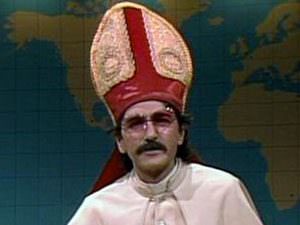
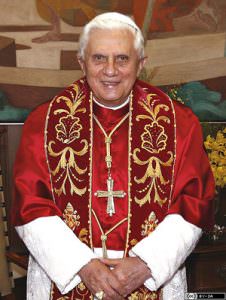
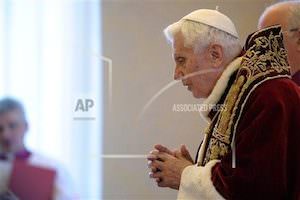
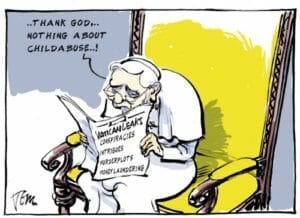
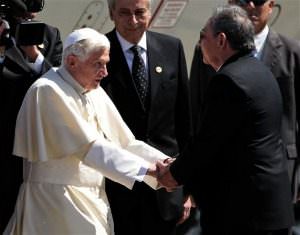
You need to be a supporter to comment.
There are currently no responses to this article.
Be the first to respond.